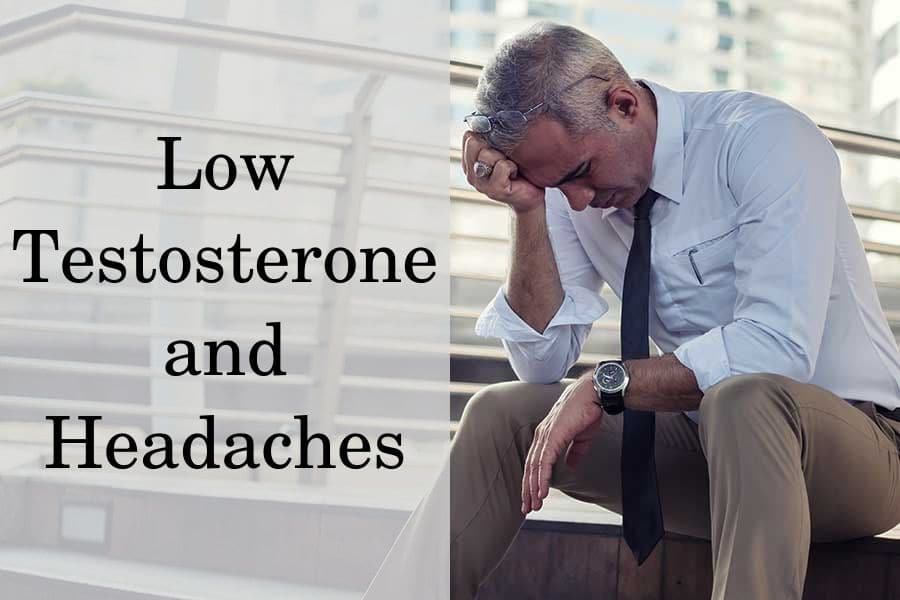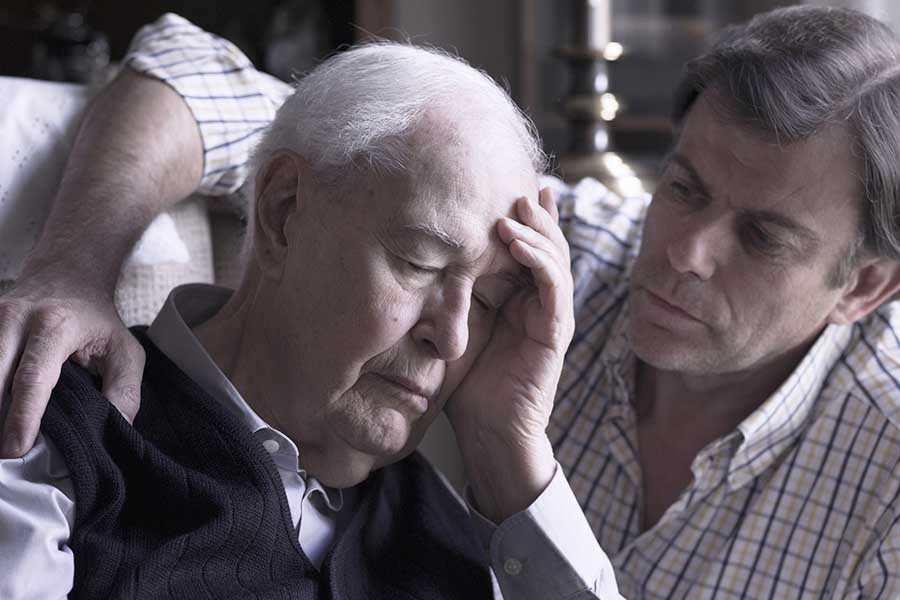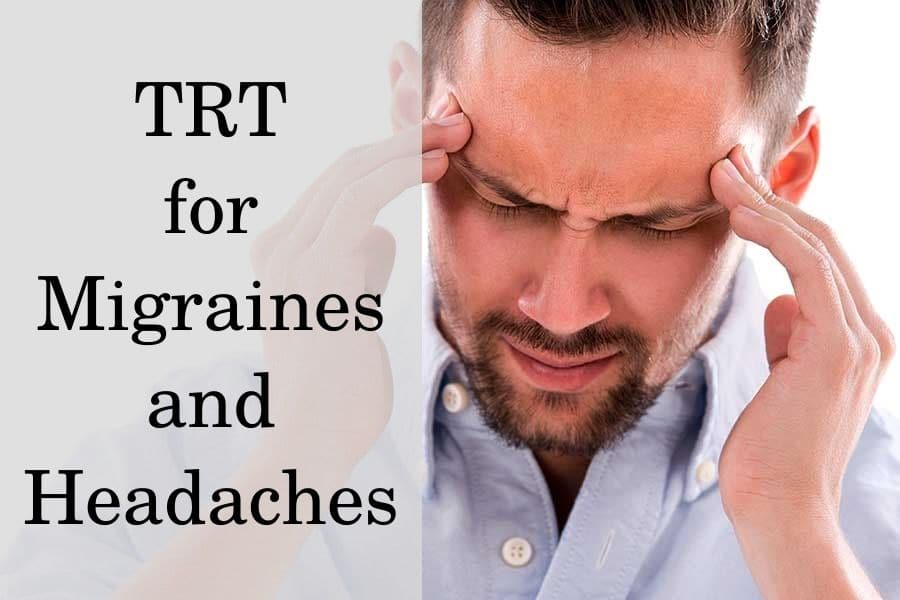The sex hormones such as testosterone and estrogen appear to have profound effects on the risk and occurrence of certain forms of headaches.
For example, migraines are much more common amongst women compared to men and the complaints often disappear after menopause, which suggests an association with estrogen levels.
Furthermore, cluster headaches are more common in men, and scientists consider that androgens such as testosterone (T) may play a major role in their occurrence. Some researchers have even described men with cluster headaches as “over-masculinized” which would suggest they may have higher T levels.
Yet, when researchers test the testosterone levels of men with cluster headaches and migraines, it turns out to be lower than average.
On the other hand, men with higher testosterone levels as well as those on testosterone replacement therapy (TRT) tend to experience cluster headaches and migraines much less often.
Currently, cluster headache is not considered a typical symptom of low testosterone. Yet, a growing body of research suggests that there may be a connection.
Can low testosterone cause headaches and migraines?
Several studies have investigated the relationship between testosterone and headaches. Currently, there are two forms potentially associated with the male sex hormone – cluster headaches and migraines.
Cluster headache is described as intense pain in or around one eye on one side of the head. Several trials from the 80s, the largest of which included 34 males, reveal that men with cluster headaches may have lower testosterone levels.
Regardless of whether the cluster headache was episodic or chronic, the scientists reported that the men had significantly lower free and total testosterone compared to healthy controls. What is more, the men suffering from cluster headache also had higher follicle-stimulating hormone (FSH).
Migraine headaches are much less common in men so scientists haven’t studied the subject extensively. Men with chronic migraine had lower total testosterone levels compared to the reference ranges for their age.
Another study also suggests that it may be the imbalance between estrogen and testosterone which occurs in some men with hypogonadism that is associated with the occurrence of migraines.
A more recent trial also showed that men who experience cluster headaches or migraines are more likely to experience symptoms that are typical for low T such as sexual dysfunction and low libido.
Due to the scarce evidence, we currently do not know the exact link between low testosterone and headaches. One of the theories is that migraines and cluster headaches are associated with a possible dysfunction in the hypothalamus.
Yet, it is unclear whether low T levels and other endocrine factors cause the dysfunction, or whether the dysfunction itself affects the hypothalamus-pituitary-gonadal axis and impedes testosterone secretion.
It is also possible that the stress caused by the headache or migraine is the main factor that lowers T levels. Cluster headaches also often occur at night and may disturb sleep, which can lower testosterone.
Are headaches a symptom of low T in men?
Headaches are generally considered rare symptoms in men with low T and there are no official statistics on how often males with hypogonadism experience the complaint.
Yet, headaches and migraines may be related to other much more common symptoms of low T such as chronic fatigue and depression.
For example, many men with low T develop major depression, and some scientists even recommend testing T levels in individuals who do not respond well to antidepressant therapy alone.
How can TRT help with headaches?
Preliminary studies suggest that testosterone therapy may help with cases of migraines and cluster headaches.
One study reported that TRT in 5 male patients helped them achieve cluster headache freedom within 24 hours of the therapy. Four of the patients, which also had abnormally low testosterone levels before the TRT, achieved cluster headache remission.
Similar to migraines, cluster headaches are associated with the hypothalamus, and neuroimaging studies demonstrated increased metabolic activity in this part of the brain.
Scientists hypothesize that testosterone may affect the hypothalamus and reduce headaches by interacting with melatonin – the sleep hormone. Its synthesis is under regulation by the hypothalamus and it is associated with the circadian nature of cluster headaches.
Also, TRT therapy results in the normalization of melatonin levels in men with low T, including both primary and secondary hypogonadism. This in turn is hypothesized to help reduce symptoms of cluster headaches.
Can testosterone therapy cause migraines?
Testosterone therapy is available in different forms, including injections, tablets, implants, gels, patches, and more. Currently, there is data in the scientific literature that some of those forms may cause headaches as a side effect.
Most of the research suggests that transdermal and transmucosal forms of TRT such as testosterone gels, testosterone patches, and testosterone buccal tablets may increase the incidence of headaches.
According to one of the studies, about 5% of the patients on transdermal testosterone develop a headache as an adverse reaction.
There are fewer studies reporting headache as a side effect in other forms of TRT
Nevertheless, one 8-year-long trial with injectable testosterone also reported headache as one of the symptoms which occurred in over 3% of the participants. The incidence of the headache did not increase for the 8 years during which the study lasted.
On the other hand, stopping TRT will cause symptoms of low T and hypogonadism to return, which may also involve the recurrence of cluster headaches or migraines.
Popular but ineffective alternatives to testosterone therapy may include various dietary supplements, also known as testosterone boosters. They are marketed as natural options for healthy people that can increase their endogenous production of T by the testes.
Yet, most of the ingredients in those products have unknown effectiveness, while some may even lower the natural T production.
Similar to their effectiveness, their safety is also uncertain, and there may be unexpected side effects related to their use, including headaches and migraines.
Get a free consultation with our medical expert for any questions about hormone replacement therapy



